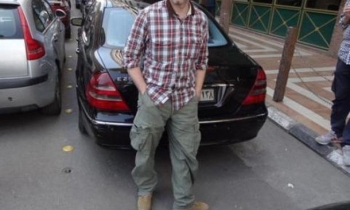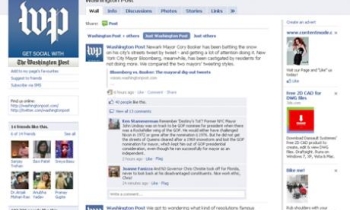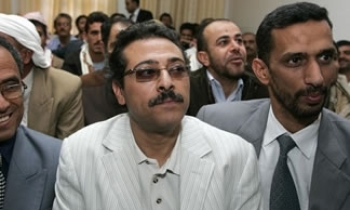A military court has acquitted three journalists of publishing a leaked document that was intercepted by the Swiss intelligence service. The case, commonly known as the “CIA fax affair”, had been widely followed both in and outside Switzerland because of its implications for press freedom and the role of military justice.
A military tribunal ruled that SonntagsBlick reporters Sandro Brotz, Beat Jost and the weekly’s former editor-in-chief, Christoph Grenacher, had not revealed military secrets when they published a purported Egyptian government fax intercepted by the Swiss foreign intelligence agency. The journalists said they had found the fax underneath a seat in a train.

The fax, details of which were published in the Zurich-based weekly in January 2006, alleged that the United States detained 23 Iraqi and Afghan terror suspects at a base in Romania. SonntagsBlick said the fax was sent by the Egyptian Foreign Ministry to its embassy in London and contained allegations about similar US detention centres in Ukraine, Kosovo, Macedonia and Bulgaria.
Swiss media rights groups and lawmakers had protested against the trial of the journalists before a court martial, arguing that civilians — particularly members of the media — should not be subject to military secrecy laws. Switzerland is the only European country in which civilians must appear in front of a military tribunal if they are summoned to do so.
Swiss journalists’ unions welcomed the ruling, handed down at the end of a one-day trial in the city of St Gallen, as a “stage victory for liberty of the press." Media union Comedia described the acquittal as a “major victory for press freedom” inasmuch as “it breaks the long list of convictions of journalists who were critical of the Federal Department of Defence and the army.”
“The military court displayed good judgment in this case, but the fact remains that subjecting journalists to military justice is a very serious problem,” said Gérald Sapey, the president of the Swiss branch of Reporters sans Frontières (RSF). The organisation urged Swiss parliamentarians to support a resolution submitted last month by national councillor Josef Lang banning journalists from being tried before military courts.
Reacting to the verdict, the newspaper’s current editor-in-chief, Marc Walder, said the journalists had acted correctly and in the public interest. “Civilians and particularly journalists must never again be put before a military tribunal,” Walder said in a statement.

The newspaper said it would continue to work toward changing the Swiss law, first passed in 1927, which allows for civilians to be put on trial before a court martial if they reveal military secrets, commit sabotage or obstruct the army’s work.
Prosecutors had demanded a fine of 39,600 Swiss francs (US$32,700; €24,100) for Grenacher and 12,600 francs (US$9,900; €7,300) for Brotz and Jost, arguing the journalists had compromised the neutral country’s intelligence-gathering operations. Prosecutor Beat Hirt told the tribunal the men had displayed a reckless attitude to national security.
Defence lawyer Matthias Schwaibold asked the tribunal to acquit the men of all charges on the grounds that the publication did not harm the intelligence agency’s work and details of the purported detention centres had already been widely publicised.
Allegations about secret CIA prisons in Europe had previously appeared in American newspapers, but the leak of the intercepted fax embarrassed the Swiss government.
A report by the European Parliament published in February named a number of countries that allegedly allowed the CIA to use their territory to transport terrorism suspects, in contravention of human rights standards. In September, US President George W Bush acknowledged that terrorism suspects have been held in CIA-run prisons overseas, but did not say where.
On January 8, 2006, SonntagsBlick published the contents of a fax from Egyptian Foreign Minister Ahmed Aboul Gheit to the Egyptian Embassy in London regarding a purported CIA prison in Romania and suggesting there were other such prisons in Bulgaria, Kosovo, Macedonia, and Ukraine. The fax stated that 23 Iraqis and Afghans had been interrogated at a Romanian military base. Rights group, Human Rights Watch, subsequently identified Romania and Poland as possible hosts for the alleged secret CIA jails.
SonntagsBlick reported that the fax was sent by satellite from Cairo to London on November 15, 2005 and intercepted by the Swiss Strategic Intelligence Service (SRS). It said the Egyptian foreign minister’s fax was picked up by the Swiss secret service Onyx’s satellite listening system in Zimmerwald on November 10. This was just three days after European human rights watchdog, Council of Europe, launched an investigation into a report by Washington Post that secret US detention facilities existed in eight countries worldwide, including several former Soviet bloc nations.









